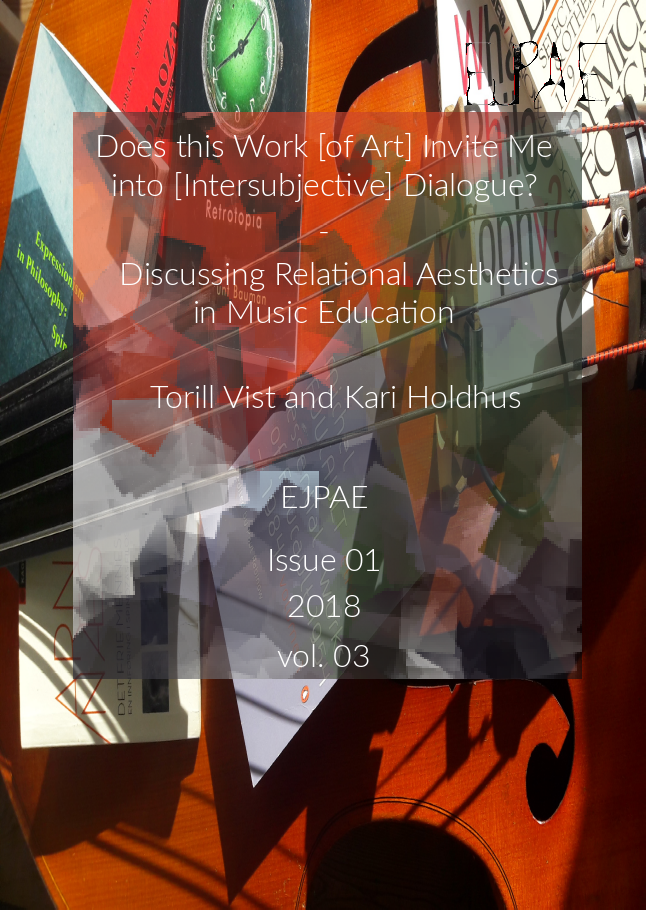Does this Work [of Art] Invite Me into [Intersubjective] Dialogue?
Discussing Relational Aesthetics in Music Education
DOI:
https://doi.org/10.5281/zenodo.3383768Keywords:
aesthetic theory, relational aesthetics, music education, musicking, communicative musicalityAbstract
Some artistic and educational practices in music have yet to be defined within the dichotomy of referential and autonomy aesthetics. However, there has been an ongoing shift towards more interactive, social and relationally founded aesthetic practices, which often originate in other art media but influence music as well. In this article, we investigate relational aesthetics’ place and further potential in music education, taking Nicolas Bourriaud’s term ‘relational aesthetics’ as a point of departure. Originally a theory concerning a specific postmodern genre within the visual arts, we identify and discuss certain elements of Bourriaud’s relational aesthetic theory that are relevant for music education, particularly the role of intersubjective relations. We further explore the traces and relatives’ of relational aesthetic theories that may already exist in and around music education, such as musicking and communicative musicality. As a result, certain aspects of relational aesthetics become more explicit than in Bourriaud’s theory, particularly care in intersubjective relations. Furthermore, we discuss the potential importance of relational aesthetics in music education practices, exemplified by teacher education, school concert visits and piano teaching. Finally, we conclude with some remarks on relational aesthetics as a resource in music education and arts education in general.

Published
Issue
Section
License
EJPAE provides immediate open access to all its published content. Users do not need to register or pay to read content.
https://creativecommons.org/licenses/by/4.0/
Authors of content published in European Journal of Philosophy in Arts Education (EJPAE) retain the copyright to their works. Content is free to be used by anyone as long as you "[...] give appropriate credit, provide a link to the license, and indicate if changes were made. You may do so in any reasonable manner, but not in any way that suggests the licensor endorses you or your use." and "No additional restrictions — You may not apply legal terms or technological measures that legally restrict others from doing anything the license permits." (from the Creative Commons licence agreement)
EJPAE does not charge any author or publication fees.
Authors are encouraged to deposit the final published version of their article for self-archiving (author's personal website) and/or archiving in an institutional repository immediately upon publication.




